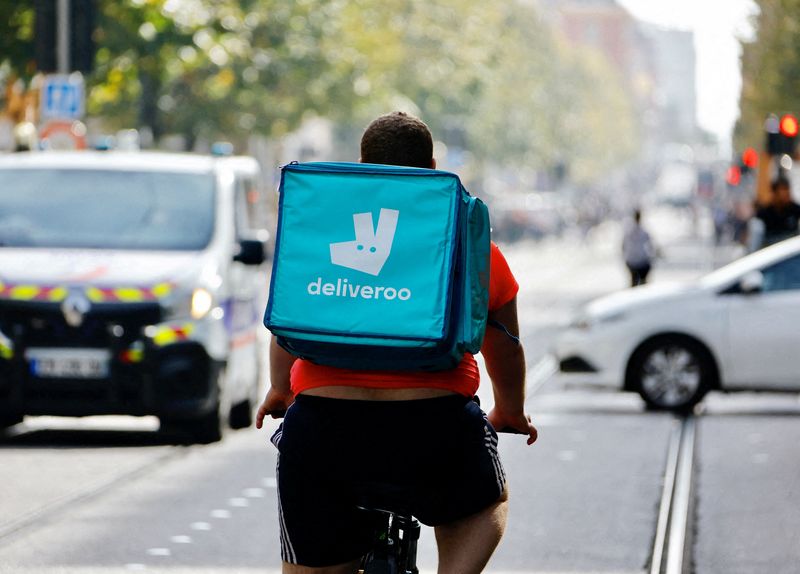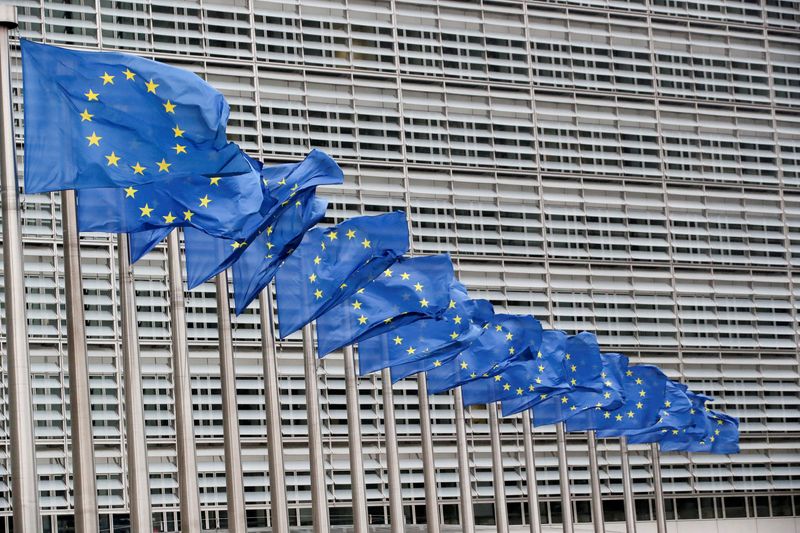By Foo Yun Chee
BRUSSELS (Reuters) - EU lawmakers and governments struck a watered-down deal on Thursday on the rights of workers at Uber (NYSE:UBER), Deliveroo (OTC:DROOF) and other online companies.
The two sides had reached a provisional agreement in December but subsequent opposition from France, Ireland, Greece, Lithuania and other countries torpedoed the deal, forcing legislators back to the negotiating table.
The preliminary deal clinched on Thursday between EU lawmakers and Belgium, current holder of the EU rotating presidency, does away with a set of criteria proposed by the European Commission to determine whether an online company is an employer, following lobbying from the companies and criticism from some countries.
Instead national law, collective agreements and case law will dictate whether a worker is an employee, in effect maintaining the status quo.
Governments will also define the employment criteria for online workers that can be challenged by companies. The burden of proof will also be on companies to show that their gig workers are not employees.
The deal will have to be endorsed by representatives of the 27 EU governments in the coming days, followed by a formal vote on both sides before it can become law.
The deal also stipulates that important decisions such as firings should not be taken by automated systems or an algorithm.
"We made sure that up to 40 million platform workers in Europe have access to fair labour conditions," said lawmaker Elisabetta Gualmini who is steering the file through the legislative assembly.

Lobbying group Delivery Platforms Europe, whose members include Uber Eats, Deliveroo, Delivery Hero, Bolt and Wolt, said more could be done for companies.
"Today's provisional agreement is a missed opportunity to create clear rules to the benefit of platform workers and the sector as a whole. Getting it right is more important than getting a deal and we hope member states will prioritize getting it right," it said.
